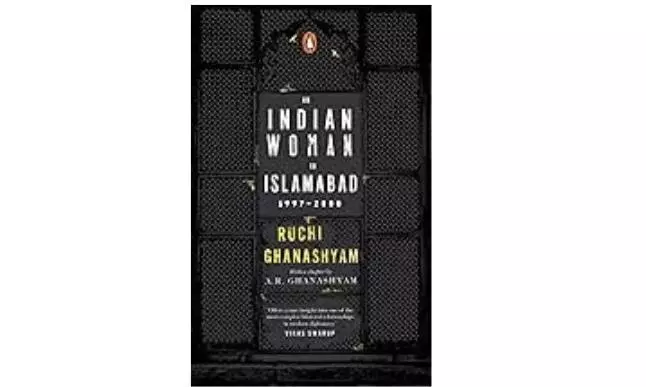Book Review | Pakistan, to a woman’s eyes

A Pakistan posting for an Indian diplomat is both a challenge and an opportunity of a lifetime. It is doubly fulfilling if this coincides with tumultuous events. For Indian Foreign Service officer Ruchi Ghanashyam this was exactly the kind of experience fate had determined for her. Posted in Islamabad in the period 1997-2000, she was witness to a series of significant events, including the May 1998 nuclear tests by India and Pakistan, Prime Minister Vajpayee’s famous bus ride to Lahore, the Kargil conflict, the coup by General Musharraf and finally the IC-814 hijacking.
These were all events that shaped India-Pakistan relations as well as the internal politics of Pakistan. The author was not only witness to the events but in some cases intimately involved with them, as was the case during the hijacking of the Indian Airlines IC-814 aircraft by a bunch of Pakistani terrorists. The aircraft was hijacked in Kathmandu and ended up in Taliban controlled Kandahar airport. The Indian diplomat assigned to first proceed to Kandahar and open talks with the hijackers was the author’s husband A.R. Ghanashyam (whose has authored the chapter on the incident).
What makes the book different from the many others written by former Indian diplomats is the personal perspective from which all events and experiences are narrated. The book is more about how she saw and interacted with Pakistanis as these events unfolded and during other times. The result is a work that provides considerable insight into the Pakistani mindset, which for the most part remains a closed chapter for Indians.
Particularly enjoyable are her anecdotes illustrating the warmth of many ordinary Pakistanis towards her and Indians in general. She also found that women in Pakistan often conversed more candidly than did men. She recalls a lady from Lahore whom she had befriended and her view of how the political system in Pakistan works. As the conversation turned to the perception that Benazir Bhutto’s party was corrupt and that her husband Asif Ali Zardari was known as Mr Ten Per Cent, the author’s friend explained that “given the unscrupulous use of multiple resources available to the establishment, including through the ISI, Benazir was left with little alternative. The ISI is a powerful institution in Pakistan. Benazir’s survival in politics was dependent on mustering the required resources. Zardari did that for her…”
The book also highlights the extreme extent of ISI’s brazen surveillance of all Indian diplomats and their often-brutal methods at intimidation. “One can’t think of another place in those days where Indian diplomats received such attention from the host state and its intelligence outfits or where they faced the risks they did in Islamabad. We had no privacy as the Pakistani agencies listened in on our phone calls and kept a close eye on what we did, where we went or whom we met.” The book leaves an impression of Pakistan as being a deeply paranoid and brutal state that has not been able to come to terms with India even after all these decades.
An Indian Woman in Islamabad: 1997-2000
By Ruchi Ghanashyam
Penguin India
pp. 240; Rs 699

